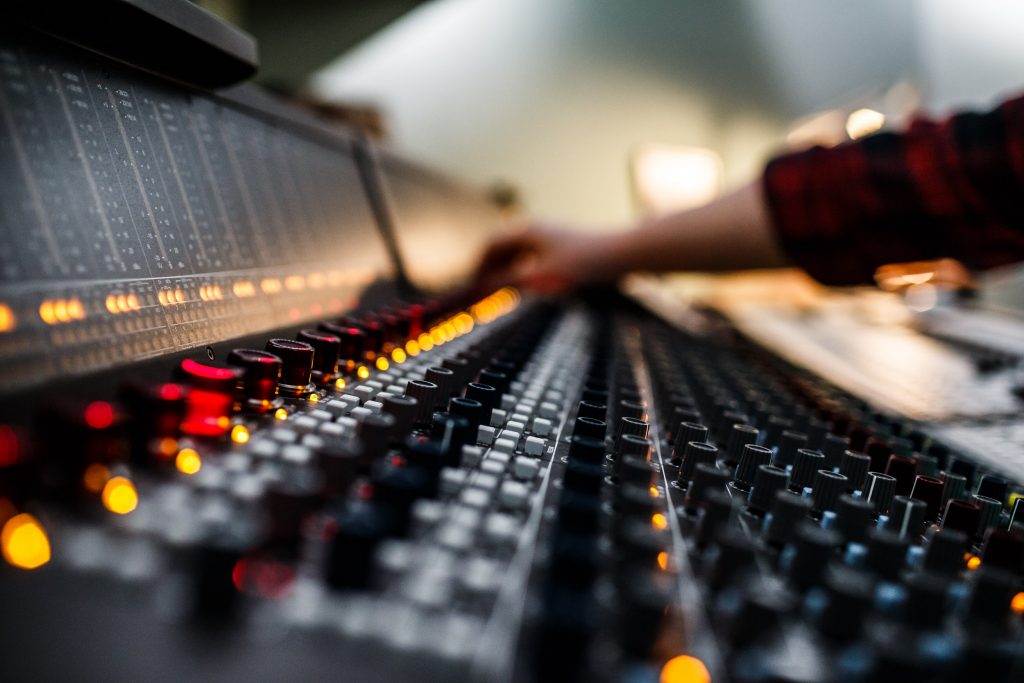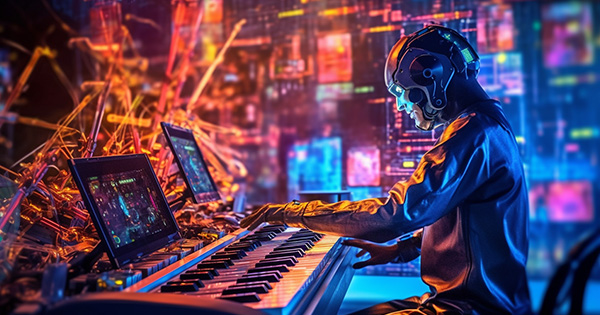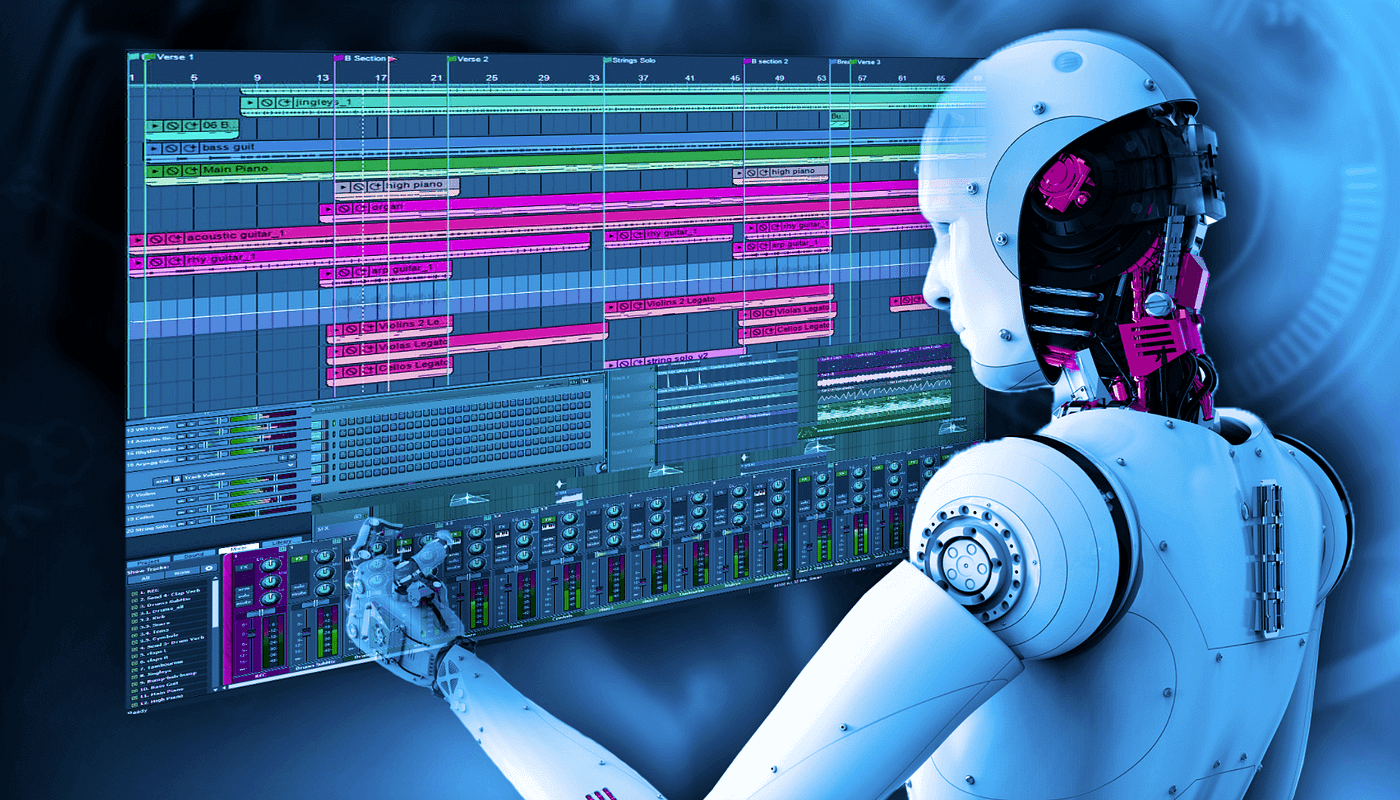A revolution in music production is already well underway due to the introduction of artificial intelligence (AI). AI has enabled artists and producers to do previously unthinkable things, drastically changing how music is produced, shared, and enjoyed. How Dolby Atmos is Evolving the Music & Home Entertainment
The use of AI technology is changing the music business in several ways, including the creation of novel ideas and the automation of repetitive tasks. The five beneficial uses of AI in music production that are redefining the practice of composing music and enhancing the creative process will be examined in this article. We will pay particular attention to how AI is improving the creative process.
1. Artificial Intelligence-assisted composition
Now that AI algorithms can create original music, this technology can be useful for musicians looking for fresh perspectives or motivation. By utilizing massive datasets and machine learning, AI systems can evaluate preexisting musical compositions and create new melodies, chord progressions, and even complete arrangements. With AI-assisted tools, musicians can explore the previously uncharted musical territory and produce ground-breaking works that combine human creativity with AI innovation.
What is Panning in Music Production?
2. Intelligent Music Production
With the advent of AI-powered tools, music production has become significantly simpler. They may use this knowledge to automatically evaluate audio recordings, detect pitch, timing, and rhythm, and even separate individual instrument tracks from mixed recordings. This automation streamlines the editing and mixing procedures, saving the producers and engineers time and effort. AI-driven plugins can also recommend the best effects and mastering options, allowing musicians to produce great compositions even if they lack technical expertise.

3. Personalized Artist Recommendations:
Streaming and music services use artificial intelligence algorithms to offer people personalized music recommendations. By considering a person’s listening patterns, musical preferences, and the environment in which the data was collected, AI systems may create playlists and recommend songs based on that person’s interests. This enhances the user experience and helps up-and-coming musicians connect with their target audience, helping to create a more inclusive and diverse music ecosystem.
4. Performance improvements made in real time include:
Artificial intelligence technology is enabling artists to enhance their live performances through the use of real-time processing. AI algorithms may assess the audio input from instruments or vocals and can immediately apply intelligent effects and upgrades. This allows performers to provide viewers with engaging, immersive experiences, adding depths of creativity and spontaneity to live performances.
5. Managing copyright and musical royalties:
AI-based systems are changing how copyright and royalties are administered in the music industry. They can help artists and other rights holders defend their intellectual property since they can easily find content covered by intellectual property rights in huge databases. Artificial intelligence also makes the complex task of tracking and allocating royalties simpler, ensuring that artists in the digital era continue to receive fair compensation for their work.
6. Advantages of Harnessing AI in Music Production

Here is the list of advantages that you can avail via harnessing AI in music production
1. Artificial intelligence-assisted composition
One of the most important contributions that artificial intelligence makes to the realm of music production is compositional help. Huge amounts of musical data may be analyzed by AI algorithms, which can analyze melodies, chord progressions, and other patterns from various musical genres and eras. These AI systems can create creative songs because they deeply understand the principles behind the musical structure. This gives musicians fresh inspiration and ideas. When working together with AI, musicians can explore the uncharted ground, push the boundaries of their creativity, and create novel and cutting-edge music.
2. Operations Simplification and Productivity Gains:
AI technology in music production streamlines several procedures, greatly enhancing workflow and productivity. Because AI-powered technology can analyze audio recordings, discover important parts, and automatically categorize files, producers can more easily manage and organize their projects. Additionally, since artificial intelligence can do boring and repetitive tasks like audio editing, mixing, and mastering, musicians are given valuable time to focus on more imaginative aspects of music composition.
3. Enhancements to the Music’s Quality and Sound Design:
Artificial intelligence-powered plugins and virtual instruments provide sound quality and realism that has never been seen before. Because these virtual instruments can accurately mimic the sounds of real instruments and synthesizers, players can access a huge library of sounds to experiment with. AI systems can also process audio intelligently, adding effects and making adjustments in real time. This may lead to sophisticated musical productions and sound design of the highest caliber.
4. Listening to music that is specifically tailored to you:
Music streaming companies and services can now provide users with tailored song recommendations thanks to artificial intelligence. AI systems assess listening habits, user preferences, and contextual information to create customized playlists and suggest appropriate songs to listeners. As a result, the listener has a more immersive and engaging musical experience. This customized approach increases customer satisfaction and makes it simpler for artists to interact with the target audience.
5. Collaboration, including Global Connections:
AI-powered collaborative solutions make it easier to produce music across international boundaries. Real-time collaboration amongst artists is made possible by cloud-based services, which enable the sharing of project data, music, and ideas due to the unique partnerships sparked by this degree of global interconnectedness. Original musical works that draw from various genres and cultural influences are produced.
6. Administration of Royalty Payments and Protection of Musical Works:
In the digital age, artists must now give more thought to managing royalties and preserving intellectual property rights. AI-powered systems are effective at spotting copyrighted content and detecting the unauthorized use of music on various platforms. Additionally, AI streamlines the complex process of tracking music usage and allocating royalties, ensuring that musicians are appropriately compensated for their work and promoting the growth of a music industry ecosystem that can endure into the future.
Conclusion:
The development of artificial intelligence has had a significant impact on the music production industry. By aiding in composition and boosting live performances, among other uses of AI in the music industry, musicians and music producers can now explore new horizons of their creative potential and push the boundaries of music creation. Artificial intelligence (AI) in music production does not replace human artistry; it elevates it by offering a powerful toolkit that increases both creative output and operational efficacy. Ultimate Guide to Stem Mastering for Beginners
As Artificial Intelligence technology develops, we may expect even more innovations in music production, which will make the procedure more approachable, effective, and individualized. The music industry’s producers and performers were willing to take advantage of these AI-driven innovations and will probably be able to compete in the fast-changing music business environment. The fusion of human inventiveness with artificial intelligence has the potential to change how music is produced in the future and how listeners interact with and value musical compositions. In light of this, let’s celebrate the positive contributions that AI has made to the creation of music and set out on an exciting musical exploration journey.


Leave a Reply